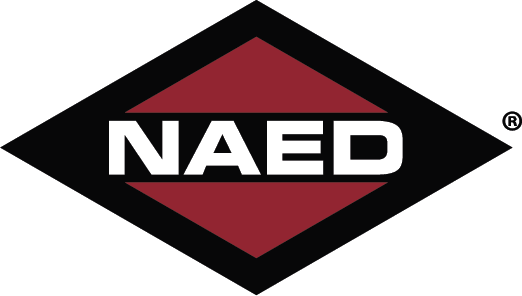Learn about our legislative priorities, how they impact our industry,
and how we are working with lawmakers to effect change.
Business & Taxes
Estate Tax
The estate tax (sometimes called the “death tax” or “survivors' tax” penalizes wealth accumulation by taxing assets that have already been subjected to income and capital gains taxes. These taxes categorized as a way to make the wealthy “pay their fair share” discourage savings and investment. Its complex structure also burdens families with compliance costs while generating minimal revenue for the government. NAED seeks to eliminate this unfair assessment against multi-generational family businesses.
Last-In, First-Out (LIFO)
Many NAED members utilize the LIFO accounting method, which is commonplace for companies with large inventories. Maintaining the LIFO accounting method allows businesses to better match current costs with revenue, providing a more accurate reflection of profitability during inflationary periods. It also offers tax advantages by reporting lower taxable income, preserving cash flow for operational needs
Permitting Reform
NAED supports bipartisan efforts to pass lasting, bipartisan permitting reform that ensures timely approval for critical projects across the country. From electricity generation and transmission to minerals extracting and processing, advancing this important priority help America build needed infrastructure to electrify the country and build new resilience into our aging electrical system.
Qualified Business Income Deduction (199A)
The 2017 tax law provided S corporations the ability to deduct up to 20 percent of their (Qualified Business Income) QBI. Preserving and permanently extending this provision will ensure a more level playing field for pass-through business.
Full Expensing
Bills like the ALIGN Act, seek to making full expensing a permanent fixture of the tax code. Full expensing encourages businesses to invest in new equipment and infrastructure, boosting economic growth and job creation. It also simplifies tax compliance and provides certainty, allowing firms to plan long-term investments without the risk of changing tax rules. Reconstituting and permanently extending full expensing is a powerful and effective pro-business strategy.
Clean Energy Incentives
NAED supports preservation of a number of tax credits that boost demand for a variety of electrical equipment. These include but are not limited to the 179D commercial buildings energy-efficiency tax deduction, the 25C Energy Efficient Home Improvement Credit, and Qualifying New Builds credit under section 45L of the tax code.
NAED also supports the CIRCUT Act, a bill to temporarily expand the 45X production tax credit to apply to the domestic production of distribution transformers.
NAED also supports the CIRCUT Act, a bill to temporarily expand the 45X production tax credit to apply to the domestic production of distribution transformers.
Workforce
Like other industries, electrical distributors need to recruit and retain skilled workers to build the energy infrastructure our economy depends on. NAED supports numerous bills in Congress that provide flexibility or new incentives to help workers find new jobs through apprenticeships, grants for veterans, or allowing job seekers to use 529 funds for training outside of the traditional college or university settings.
Supply Chain
Our members provide little noticed, but critical services to the electrical equipment supply chain as well as the communities we serve and workers we support. One bipartisan bill NAED supports would task the Department of Commerce to establish a critical supply chain resiliency program to monitor, map, and model critical supply chains, identify and address gaps and vulnerabilities in critical industries, evaluate potential disruptions' impact on U.S. economic security, collaborate with governmental and international partners to reduce risks, and designate critical industries, goods, and guidelines to minimize supply chain disruptions.
Clean Energy Incentives
NAED supports preservation of a number of tax credits that boost demand for a variety of electrical equipment. These include but are not limited to the 179D commercial buildings energy-efficiency tax deduction, the 25C Energy Efficient Home Improvement Credit, and Qualifying New Builds credit under section 45L of the tax code.
NAED also supports the CIRCUT Act, a bill to temporarily expand the 45X production tax credit to apply to the domestic production of distribution transformers.
NAED also supports the CIRCUT Act, a bill to temporarily expand the 45X production tax credit to apply to the domestic production of distribution transformers.
Workforce
Like other industries, electrical distributors need to recruit and retain skilled workers to build the energy infrastructure our economy depends on. NAED supports numerous bills in Congress that provide flexibility or new incentives to help workers find new jobs through apprenticeships, grants for veterans, or allowing job seekers to use 529 funds for training outside of the traditional college or university settings.
Supply Chain
Our members provide little noticed, but critical services to the electrical equipment supply chain as well as the communities we serve and workers we support. One bipartisan bill NAED supports would task the Department of Commerce to establish a critical supply chain resiliency program to monitor, map, and model critical supply chains, identify and address gaps and vulnerabilities in critical industries, evaluate potential disruptions' impact on U.S. economic security, collaborate with governmental and international partners to reduce risks, and designate critical industries, goods, and guidelines to minimize supply chain disruptions.
For more information about these items or anything government-related,
contact Bud DeFlaviis, NAED's Director of Government Relations.

